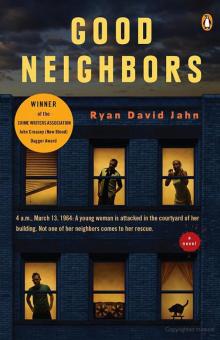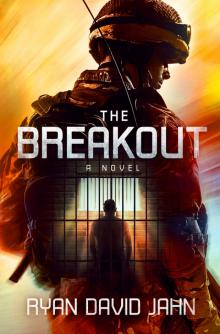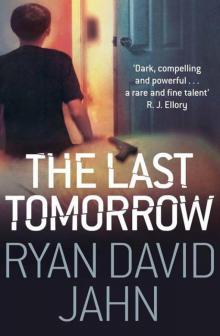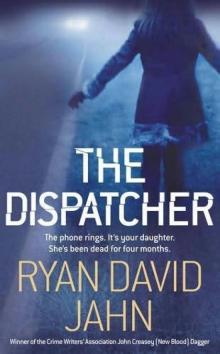- Home
- Ryan David Jahn
Good Neighbors Page 14
Good Neighbors Read online
Page 14
In their old life, Diane wouldn’t have been able to stay mad at this broken Larry. The sight of him like this would have melted her heart. Her big strong Larry looking like a boy who’s lost his dog. It would have gotten to her.
But this isn’t their old life.
‘I’m sorry,’ he says.
‘That’s not good enough.’
Larry nods.
‘I know. I know it’s not. I know nothing is. But I love you and I don’t want to lose you. I don’t want that.’
‘You’re not losing me,’ she says. ‘You threw me away.’
‘I didn’t.’
‘What do you call it? What do you call what you did? You made a promise, the most important promise a man can make to a woman, and then you broke that promise. You threw it away. What does that say about your feelings for me?’
‘Nothing,’ he says. ‘It doesn’t say a goddamn thing about my feelings for you.’
‘I don’t believe that.’
‘It says I’m an idiot. It says that I don’t appreciate what I’ve got until I’m threatened with losing it. It says I’m a bad person, a fuck up, a low life. Scum. But it doesn’t say anything about my feelings for you, Diane. I love you. I will never stop loving you. If you can’t forgive me and you have to leave, I understand that. It breaks my heart, but I understand that. But don’t leave because you think my mistake means I don’t love you. I want to continue to wake up next to you for the rest of my life, for the rest of our lives. I want you to know that. I’ve just been sitting out in the living room, trying to think of ways to tell you that, but there it is. I don’t know how else to say it. I love you and I want us to stay together more than I’ve ever wanted anything. So if you’re going to leave me, don’t leave me because you think I don’t love you, or I’ve thrown what we have away. If you can’t forgive me, you can’t. But I hope you can. I want you to. I’m asking you to. Please, Diane, forgive me. Please – forgive me and let me make it right again.’
Diane does not say anything for a long time. She stands there and she looks at Larry looking back at her with his pained red eyes. She thinks of the happy times when they met, and the several happy years that followed – but she also thinks of the sad years, their inability to have children, the miscarriages, the way it broke her heart, the way Larry blamed her as if she’d done it on purpose; she thinks of the way they can sit in the same room and seem miles apart, the silence between them.
‘Diane?’
Diane shakes her head.
‘I’m sorry,’ she says. ‘I just don’t think I can.’
33
Harriette is tired – more tired than she has ever been before.
‘Patrick.’
She does not say it loudly but Patrick is a good boy and attentive and a moment later the door is pushed open and he’s standing there looking down on her with concern in his eyes.
‘What is it, momma?’
‘Why is it,’ Harriette wonders aloud, ‘that you can still call me momma, but I can’t call you Pat anymore?’
Patrick smiles.
‘That’s different,’ he says. ‘Are you okay?’
It was hard – it was a hard life – raising him up alone for the last eight years and change, but looking at him now she thinks she’s done all right.
‘Of course I’m not okay, honey,’ she says. ‘I’m dying.’
Patrick does not say anything.
‘I’m dying,’ Harriette says again.
‘Is there anything I can do?’
She holds up an orange bottle of pills in her hand.
‘I couldn’t get these opened.’
‘It’s not time for you to take your pills.’
Harriette nods her head and says, ‘I believe it is, Patrick.’
She watches her son go pale as he comes to understand what she’s saying; she watches him shake his head.
‘Your arm,’ he says, motioning to the machine in the corner, ‘it didn’t. . . you weren’t in pain, were you?’
‘I’m finished.’
‘No.’
‘Why not? I’m tired, Patrick. I’m tired and I’m bedridden and the only way I see the sun anymore is through a dirty pane of glass.’
She shakes her head.
She thinks of sleep, blissful darkness, the kind of blissful darkness she had before she was born. She felt no pain then. She felt nothing. She once heard life described as a brief window of light between two vast expanses of nothingness. She doesn’t know if that’s accurate – but she does know her light is flickering, and she hopes it’s accurate: she wants it finished; she doesn’t want to wake up ever again, not anywhere.
‘I’m tired,’ she says again.
Patrick walks over to her and reaches for the pills. She pulls her hand away, but he grabs her wrist and pries the bottle from her fingers.
‘If you’re tired,’ he says, ‘lay down and get some sleep.’
‘I’m much more tired than that,’ Harriette says. ‘You’re a young man. You don’t understand yet what the world does to a person.’
‘I can’t let you—’ He closes his eyes, just for a moment, but in that moment Harriette thinks her son looks beautiful, like his father used to look when she first met him. He’s so like his father – only Patrick doesn’t have the same rage. Henry was such an angry man. She’s afraid that life will give that rage to Patrick too eventually – she thinks it will – but for now it’s absent. He opens his eyes. ‘I can’t let you do what you want to do,’ he says.
‘Why?’
‘I can stay. I won’t report.’
‘What good will you be in jail?’
‘Then I’ll report,’ he says, ‘but I’ll tell them you’re sick, that you’re sick and you need me to stay to take care of you.’
‘I want you to stop using me as an excuse, Patrick.’
‘I don’t know what you mean.’
‘Yes, you do. You’re a smart boy.’
‘You asked me to take care of you.’
‘Maybe I was wrong,’ Harriette says, thinking the maybe is a kindness to herself she doesn’t deserve. ‘You’re nineteen years old and the only life you live is through that damned telescope of yours. And I know you want more, Patrick. I know you do. But I also know you’re afraid of . . . something. I don’t know what. Maybe life itself. But you are and you’re using me as an excuse. So stop. Stop using me as an excuse.’
Patrick looks to the corner. His eyes are bright and alive with emotion. After a while, he looks back. ‘I’m not afraid of life,’ he says. ‘You’re wrong about that, momma. I’m not afraid of the world.’
‘What are you afraid of?’
‘I’m afraid of . . .’ He swallows and he has to look at his stocking feet to get it out. She understands that: sometimes you need to be alone to admit things to yourself – especially out loud. ‘I’m afraid of becoming like him.’
‘Your father.’
Patrick nods.
‘Your father was not a good dad,’ Harriette says. ‘He was not a good husband. But he was not a bad man.’
‘He . . . hurt me,’ Patrick says. He looks away, blinks, and Harriette’s heart breaks for the pain she sees inside him. But then it’s gone. He swallows it and it’s gone, replaced by coldness and something else.
That’s when she’s sure of it – when he gives her that cold look – that the world will, without a doubt, give Patrick the same rage that his father had in him, that he will not let himself hurt, and so the hurt will turn sour, and turn into something worse.
‘I’m taking your pills with me so you don’t do anything stupid,’ he says, with no emotion in his voice. ‘Get some sleep.’
34
Peter sits on the couch across from Bettie. He tilts the bottom of his tumbler toward the ceiling, washing the last of the whiskey and water and icemelt down his throat. A half-melted ice cube falls into his mouth as well – clattering against mercury-filled molars – but after swallowing the liquid, he spits it back into th
e glass and sets the glass down on his coaster on the coffee table. He stares at it. He thinks of the condensation ring in the bedroom. He doesn’t understand how he can be thinking about that fucking ring when his life is falling apart, but he can – he is. He should take furniture polish to it. He also needs to scrub the whiskey out of the carpet.
He puts his right hand to his face, wipes at the corners of his mouth with index finger and thumb, and then takes his hand away again.
He stands up and sits down and stands up again.
‘I have to talk to Anne.’
Bettie nods.
‘You should do that.’
‘I’m gonna go talk to Anne.’
He turns and walks away from Bettie. She is beautiful – and sexy in the same way he thinks Elizabeth Taylor is sexy – but he cannot believe he has put his marriage in jeopardy for that when he knows almost nothing about her. Her likes and dislikes. Whether she sleeps in on the weekends and does nothing till noon or if she wakes up bright and early and wants to get out of the house as soon as the sun rises. How she likes to spend her evenings. What kind of books she reads. Whether she reads books at all. He cannot believe he’s endangered his marriage for a stranger with nice breasts and full lips. He is an idiot.
He grabs the doorknob and turns it and pushes his way into the bedroom.
When he does, Ron and Anne stop, and for a moment it’s as if they are frozen. She is on her back on the bed, her ass to the edge of the mattress, and Ron is standing with his knees slightly bent, with Anne’s ankles hooked over his shoulders, and he is inside of her. If it weren’t so goddamn infuriating it would be a comical sight, but it’s not a comical sight – not for Peter, not right now. He’s on the verge of losing this woman, his wife, and there’s a man, the man who started it all as far as he’s concerned, who’s taller than him, better looking than him, who seems like he knows his way around a car, who seems more confident and together, despite how hard Peter tries to hold himself together, to seem like he’s got his shit in order, to project confidence – there’s this motherfucker who probably would have beat him up in high school and he’s got his dick in Peter’s wife.
Ron pulls away from Anne and Anne sits up.
‘Peter,’ she says.
‘I’ll fucking kill you,’ Peter says, spittle flying from his mouth, rage burning hot in his cheeks, chest aching as his heart pounds, and he feels like something ready to explode, like a bomb, and he leaps at Ron. His shoulder slams into Ron’s naked stomach, shoving the man’s back against the wall.
Peter swings with all his might, all his anger and rage, slamming his fist into Ron’s chin. Ron’s head whips to the left with the arc of the punch, but it doesn’t give enough, and Peter feels his ring finger break at the impact – feels the knuckle give and then collapse into the rest of his hand, crumpling like an empty beer can. It shoots pain up his arm, an electric jolt up the hollows of his bones, but that only infuriates him more. As does the fact that Ron doesn’t seem as hurt by the punch as Peter is himself. His hand is aching, on fire now, and Ron is simply turning back to Peter to look at him, is simply saying, ‘Peter, you don’t underst—’ But Peter doesn’t let him finish. He throws another punch, this time connecting with the nose, and the nose is soft, and he feels it bend beneath the force of his punch, under his aching fist, and then he feels something in Ron’s nose snap like a dry twig – only the sound it makes isn’t exactly dry – and he sees blood gush from Ron’s face, run down his mouth, drip onto his naked chest and his slightly protruding belly. The man still has an erection. Unbelievable. And Ron wipes at the blood on his face with the back of his hand and says ‘Peter’ calmly – calmly, God damn him – ‘I’m about to lose my patience.’ Lose his patience? Peter wants him to fall to the ground, to fall down and beg for mercy. Peter wants to be the one who wins – just this once. He’s putting everything he has into besting this man and the guy doesn’t even notice it; the guy’s simply about to lose his patience. The guy hasn’t even tried to win yet, but Peter already knows it’s inevitable. Because he’s lost. But he tries one last punch anyway – one last punch. Ron simply catches it in his open hand, as if it were a tossed baseball, and shoves it away from its target, and with that the rage is gone, replaced by the knowledge of complete defeat. He has lost. He is not a man. If ever he had the potential to become one, even that potential is gone.
‘Peter,’ Anne says.
But he can’t make eye contact. He is not a man and he does not deserve a woman – and Anne is a woman: a beautiful woman – and he has destroyed whatever it was that was keeping them together.
‘I’m sorry,’ Ron says.
‘I’m not,’ Anne says. ‘You didn’t care before Bettie rejected you.’
‘I’m sorry,’ Ron says again. ‘The fun has been over for some time now, and I shouldn’t have—’
‘Can you please leave me and Anne alone?’
Peter looks up at Ron, who is covered in blood, who is dripping it onto the carpet, staining the carpet – who gives a fuck about the fucking carpet right now, Peter? – and Ron nods his head.
‘Okay.’
‘Thank you,’ Peter says.
Ron walks toward the door looking back at Peter and Anne, and there’s something like pity in his eyes when he looks at Anne, and Peter feels anger heavy in his gut again like a hot stone – that son of a bitch – but then the guy is out the door, shutting it quietly behind him.
Peter looks at his wife, looks into her eyes. They are sad and pained and angry all at once. How can he ever make her understand that it was all just idiocy on his part and that he knows it was – that a lot of it was simply wanting to have something that belonged to Ron, a man who represents everything he believes he’s not, and that he didn’t even know that’s what it was until right now? How can he tell her that it was all because he’s weak and effeminate and has small hands and thin wrists and for once he just wanted to take something away from one of the guys who’ve been taking away his dignity all of his life, with their snide comments, with their condescension, with the way they try to rip him off when he takes his car to the mechanic or when he calls the plumber, knowing that he doesn’t know enough about those things to stand up for himself? He wants to tell her about how small he feels when that happens. When guys just like Ron take his barstool when he walks away to take a leak, simply shove his beer aside, and when he comes back they act like he’s not even there or like he’s inconveniencing them when he reaches past to get his bottle. When guys like Larry across the courtyard come over – come over because he invited him and his wife over, because Peter has always wanted to be one of the guys even though he’s never felt like he was; he’s always felt like he was standing outside that group looking in; and Larry is nothing if not one of the guys – and chide him for not knowing how to cook a steak like a man. Like a man? It’s my goddamn kitchen and I’ll cook a steak any goddamn way I please, Larry, you son of a bitch, and if I want a fucking red wine and cranberry sauce on it, that’s what I’ll have.
He can’t tell her any of that, can he? Because men cannot be weak. Men cannot be confused. Men cannot feel small and alone and pathetic. He cannot tell her that, but he has to tell her something. He has to tell her something, anything – anything but that.
‘Anne,’ he says.
‘Peter.’
He licks his lips.
‘Anne,’ he says.
35
Lying on her back Kat can see the first touches of morning light in the sky as the sun, not yet visible, begins to bleach morning into existence from the other side of the horizon, and the light reveals how dark and ugly the clouds are overhead. Dark and gray and ugly and mean.
To see the sky she has to look past the sweating, cruel face which is hovering only inches from hers, wearing a grimace, the eyes bloodshot and cold and desperate. Her body is being ground down into the moist soil under her back, and she can feel the man’s thing inside her, tearing her, and she knows she must be bleeding down
there now, too. She just wants it to be over. She wants it to be over and she can smell his hot breath on her face – food and digestion and an abscessed tooth.
Both of the man’s hands are gripping at her shoulders, the fingers digging into her flesh. She thinks she can feel one of the fingers inside the hole where he stabbed her – behind the collarbone in her right shoulder – but she hurts so bad everywhere now, she is so cold and numb and pained simultaneously, that she’s not sure. She’s not sure of anything but the gray clouds gathering overhead and the bloodshot eyes of the man on top of her.
And the hands gripping her shoulders.
Gripping her shoulders, not gripping the knife.
The knife. With rust flecks like freckles.
It must be somewhere.
Forget where you are, Kat, forget where you are and close your eyes and feel for the knife, for the cold of the metal.
Find the knife.
It must be somewhere.
Kat closes her eyes so she doesn’t have to look at the man’s face. She closes her eyes and she reaches out with her hands, feeling for the knife, praying to God that she finds it – please, God, I’ve tried to be good and I don’t know why you’re punishing me, but I’ve tried to be good, so please, please, please won’t you just let me find the knife, please – and she feels the black dirt, and she can smell manure in the soil, and her hand touches something, but it’s just the stem of a flower; and then she feels something else, she thinks she feels something else, and then the very tip of the knife stabs into her finger – the tip of the knife not the thorn on a rose; she’s sure of it; there are no roses here – and there’s a little bit of pain, but she can barely feel it and she’s glad for it because it means she found the knife. She found it. It’s right there. She tries to grab it but she only pushes it away. She accidently pushes it away or spins it slightly out of her reach, and she tries to stretch to grab it, but now it’s gone. It seems to be gone, but it can’t be gone. It’s right there.

 Good Neighbors
Good Neighbors The Breakout
The Breakout The Last Tomorrow
The Last Tomorrow The Dispatcher
The Dispatcher